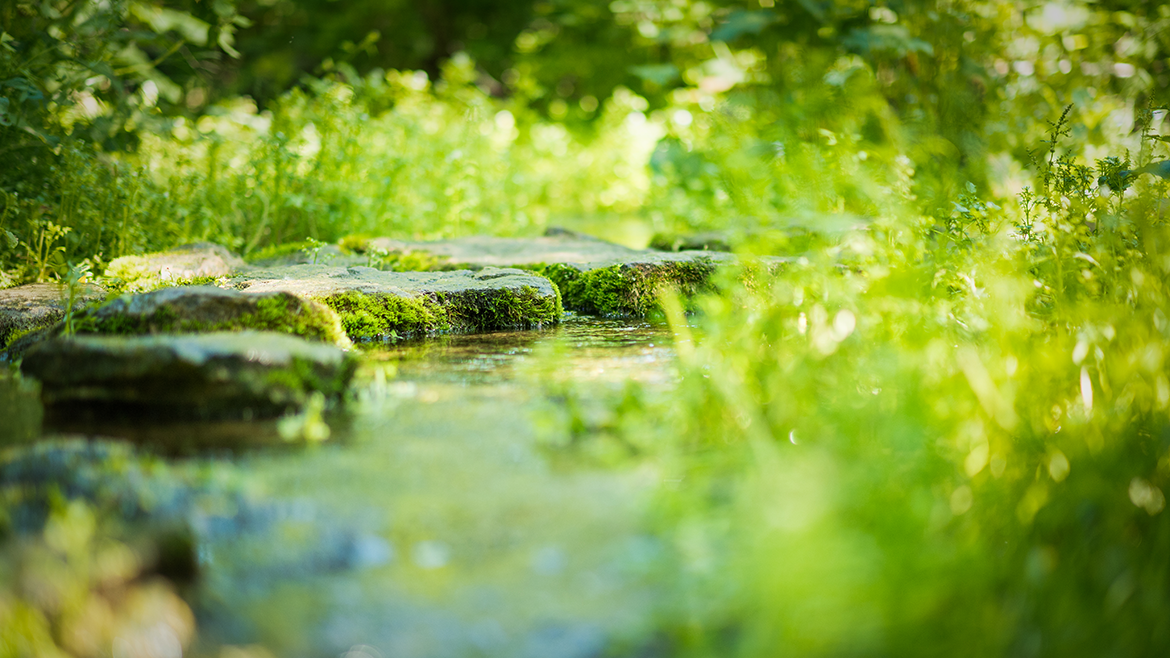Outreach
Floating Staircases Provide Access
This fall, Tim Campbell and Eric Olson are bringing serious scientific research to a seriously comfortable environment. Tap Talks is a series of nine monthly talks held at Central Waters Brewery to engage those who live in and around Amherst in Portage County with the science and scientists of the University of Wisconsin-Madison and Stevens Point campuses.
“In the communal space of the brewery, we’ll be supporting two-way communication between scientists and the public in the spirit of the Wisconsin Idea, the foundation of Wisconsin’s public university system,” said Campbell, who is an outreach specialist with Wisconsin Grant and also holds a part-time appointment with the University of Wisconsin-Extension Environmental Resources Center.
Olson brings his expertise as director of the University of Wisconsin-Extension Lakes.
Tap Talks is modeled after science cafes, an effective way to both convey scientific research findings and get feedback on future research directions. Scientists have been increasingly sharing their work through semi-formal presentations in small regional breweries in outstate Wisconsin; Minocqua and Ashland are two examples. The River Talks science series hosted by Sea Grant and several partners has for five years offered monthly talks in Superior and Duluth coffee shops and bars.
In 2017, Jon Steigerwaldt, owner of Steigerwaldt Forest Professionals and community partner with Campbell and Olson, contacted Central Waters Brewery to kick-start the idea of a speaker series. An Ira and Ineva Reilly Baldwin Wisconsin Idea Endowment grant will allow its expansion.
For more information, including dates and times for the talks, visit centralwaters.com.
-MEZ
Sea Grant Helps City Clean Up Its Zoning Code “Monster”
The city of Superior, Wis., is surrounded by water. The St. Louis River bounds it to the west, the Nemadji River to the east, the Pokegema River to the south, and the harbor and Lake Superior to the north.
“Protecting that water as well as our overall natural environment should be one of our highest priorities,” said Superior Mayor Jim Paine.
To that end, city staff and a contractor are beginning a process this summer, led by Wisconsin Sea Grant’s Julia Noordyk, to review and update city codes and ordinances to reduce stormwater pollution.
The effort is thanks to a grant from the Wisconsin Department of Natural Resources and involves something called a green infrastructure code audit. Green infrastructure includes creating natural water-collecting features like rain gardens, permeable pavement and green roofs to help soak up snowmelt and rainwater.
Interest in a green infrastructure audit grew from a workshop Noordyk, water quality and coastal communities outreach specialist, put on last year in Duluth with staff from Minnesota Sea Grant.
The workshop spurred the idea of cooperation between Superior’s Environmental Services Division of Public Works and Noordyk, which led to the successful grant proposal for the code audit. Activities will follow the process outlined in Wisconsin Sea Grant’s “Tackling Barriers to Green Infrastructure: An Audit of Local Codes and Ordinances Workbook,” which involves community scoping, auditing codes and ordinances, and developing a strategy for adoption of the changes.
Noordyk expects to have her work cut out for her, playfully stating, “I’ve already heard that Superior’s zoning code is a monster.”
The mayor echoes this viewpoint. “I think everybody agrees that our zoning codes need revision. The most important thing, though, is that we have a vision for what kind of city we want as we’re revising them.”
–MEZ
UWSP NADF: Advancing Aquaculture Education and Outreach
Sea Grant has supported the University of Wisconsin-Stevens Point Northern Aquaculture Demonstration Facility (UWSP NADF) since 2014. The facility is a northern campus of UW-Stevens Point, located near Bayfield, Wis., that houses groundbreaking research projects, provides demonstrations of systems and practices and provides state-of-the-art training and educational opportunities. To learn more about the facility, projects and opportunities visit aquaculture.uwsp.edu.
Fish Donations
Thanks to technical assistance, resources and fish from the UWSP NADF, schools in Ashland, Washburn and Bayfield have operating aquaculture or aquaponics systems in their classrooms. UWSP NADF has also recently donated extended fingerling feed-trained walleye to additional schools across Wisconsin including Winneconne, Bay Port and Freedom High School. Because currently there are no commercial suppliers of feed-trained walleye in Wisconsin, these schools have a very unique opportunity to raise walleye in their systems. Aquaculture in the classroom not only promotes STEM education but also stimulates workforce development.
Aquaculture Boot Camp (ABC) in WisconsinIn partnership with The Ohio State University (OSU), the UWSP NADF and UWSP Aquaponics Innovation Center (UWSP AIC) are collaborating with Nelson & Pade Inc. and the Wisconsin Aquaculture Association to offer Wisconsin’s first Aquaculture/Aquaponics Boot Camp. This is a free, year-long training opportunity for beginning aquaculture farmers that covers a variety of topics to prepare participants for fish farming in the Midwest. UWSP NADF is organizing the sessions, topics and speakers for this boot camp, highlighting one aquaculture topic a month for a year at various locations.
Wisconsin Aquaculture Conference
In collaboration with the Wisconsin Aquaculture Association, UWSP NADF organized the Wisconsin Aquaculture Conference last March. The conference included Minnesota and Michigan in discussing industry updates and state priorities. It included such topics as industry updates, hatchery design, aquaponics, and fish health and biosecurity and included an industry trade show, lunch and cooking demonstration. Speakers represented businesses and organizations such as Virginia Tech, the Wisconsin Department of Natural Resources, the University of Minnesota, Superior Fresh, Urban Organics, Plymouth Springs Fish Farm, Rushing Waters Fisheries and Clayton Veterinary Care.
Pond Culture Workshop
Nationally the aquaculture industry continues to expand, but growth of the Great Lakes region’s aquaculture industry has slowed. Many new and existing fish farmers cite a need for technical training and dissemination of current production knowledge. UWSP NADF is developing a series of three- to five-day teaching modules, for both online and in-person workshops, based on topics the Great Lakes aquaculture industry has identified as missing from current education offerings. One of the topics identified was pond culture. Last summer, UWSP NADF offered pond culture training consisting of four online video PowerPoint modules and two hands-on workshops. The online modules were created by UWSP NADF and project partner the Lac du Flambeau Tribe and included pond construction and fertilization, water quality and fish management.
–Emma Wiermaa
UWSP NADF Aquaculture Outreach Specialist


